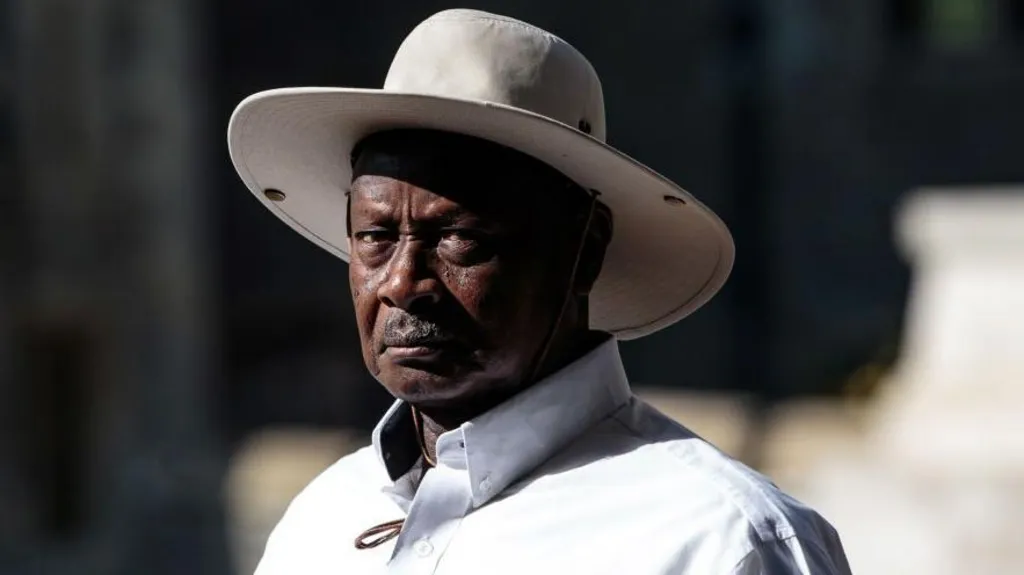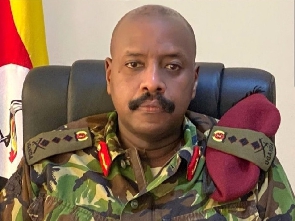Uganda’s military has officially cut all defence cooperation with Germany, citing what it describes as “subversive activities” linked to the German ambassador, Mathias Schauer. The accusation, delivered without accompanying evidence, marks a steep escalation in diplomatic tensions between Kampala and Berlin.
A statement released by army spokesperson Col Chris Magezi accused Schauer of involvement with “pseudo political-military forces operating in the country against the Ugandan government.” He added that “credible intelligence reports” had necessitated the abrupt suspension, which will remain “until the full resolution of the matter.”
The German foreign ministry has strongly rejected the allegations, calling them “absurd and without any merit.”
This diplomatic rift appears to have intensified following a private meeting between Schauer and other European Union diplomats, including Uganda’s powerful military figure, Gen Salim Saleh. At that meeting, Schauer reportedly voiced concern over recent social media behavior by army chief Gen Muhoozi Kainerugaba, son of President Yoweri Museveni.
The army chief has recently stirred controversy with inflammatory statements online. In one instance on X, Gen Kainerugaba threatened to behead opposition leader Robert Kyagulanyi, widely known as Bobi Wine. He also claimed to have tortured Wine’s bodyguard following an arrest.
Human rights organizations have consistently accused the Ugandan government of clamping down on dissent, particularly in the lead-up to national elections. Wine, a vocal critic of the regime, is expected to challenge President Museveni in the 2026 polls.

Museveni, now in power for nearly 40 years, is often accused of running a dynastic regime. His wife, Janet Museveni, serves as Minister of Education, while his brother, Gen Saleh, oversees a national development program known as Operation Wealth Creation.
Tensions have grown over perceptions that Museveni’s family dominates both government and military institutions. The latest diplomatic fallout with Germany adds another layer of scrutiny to Uganda’s internal affairs and its dealings with foreign allies.
In a pointed online response to Ambassador Schauer’s reported comments, Gen Kainerugaba clarified he is criticizing the ambassador, not the people of Germany.
“He is wholly unqualified to be in Uganda. It has nothing to do with the great German people. Whom I admire a lot.”
Gen Kainerugaba
The remarks came just days after Schauer reportedly questioned whether the army chief’s online activity was tarnishing Uganda’s global image.
Diplomatic Fallout Risks Uganda Bilateral Stability
Germany has maintained close ties with Uganda in areas such as trade and development. According to information on the German embassy’s website, trade between the two countries reached approximately $335 million in 2024. The bilateral relationship has historically been described as one based on “stability and trust.”
However, there has been no public disclosure on the extent of military cooperation between the two nations. Uganda, for its part, plays a crucial role in regional peacekeeping operations, particularly in Somalia, where it has been instrumental in fighting Islamist insurgents.
The sudden halt in military collaboration could have implications beyond Uganda’s borders, especially within African Union missions and multinational operations reliant on coordinated efforts with external partners like Germany.
As of now, Germany has not issued any statement about reciprocal actions or further diplomatic consequences. Ambassador Schauer, who has served in Uganda since 2020, remains in his post as this diplomatic impasse unfolds.
The Ugandan government has not provided a timeline for the “full resolution” it demands before resuming military cooperation. Meanwhile, critics argue that the suspension reflects a broader pattern of the Museveni administration isolating international voices that raise uncomfortable truths.
READ ALSO: Fmr. GIIF Board Chair Granted GH₵10 M Bail in Controversial Sky Train Case



















